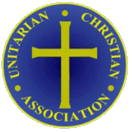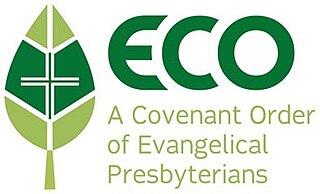In Britain, the term Free Christian refers specifically to individual members and whole congregations within the General Assembly of Unitarian and Free Christian Churches.
These Free Christians do not subscribe to any official doctrines or creeds, as found in other churches. Because of their historical connections with Unitarianism, they are known particularly for allowing dissent from Trinitarian doctrine (the belief that God exists as a Trinity). However, these Free Christian groups also welcome people who adhere to more orthodox beliefs, as the emphasis is on theological inclusivity rather than non-conformity per se.
In Britain the term "Free Christian" can be traced back to the ministry of James Martineau in the late 19th century. Martineau was an advocate of theological inclusivity, arguing that explicitly Unitarian churches would lead to "a different doxy" from orthodoxy. He urged churches within the Unitarian denomination not to use the name "Unitarian," and suggested "Free Christian" as a more inclusive alternative. [1] In 1868 he went further, forming the Free Christian Union, which he hoped would unite Christians of various beliefs who were opposed to officially imposed doctrine or creeds. [2]
In today's Britain, Free Christians are aligned denominationally within the ranks of the General Assembly of Unitarian and Free Christian Churches, and more specifically, the Unitarian Christian Association.
The leadership of the Church is made up of Professional Ministers and Accredited Lay Preachers.
In Ireland, similar congregations are called "Non-Subscribing Presbyterians". The Non-subscribing Presbyterian Church of Ireland, an independent denomination in its own right, no longer has any institutional link with the GAUFCC and UCA (the NSPCI disaffiliated from the UCA in 2015); although some NSPCI ministers trained through their theological and ministry training colleges. [3] They would also consider themselves to have a shared heritage. As such, they could be viewed as connected to the same 'Free Christian' current, at least in historical terms. The NSPCI retains a non-creedal, Christian identity.
A creed, also known as a confession of faith, a symbol, or a statement of faith, is a statement of the shared beliefs of a community which summarize its core tenets.

Presbyterianism is a Reformed (Calvinist) Protestant tradition named for its form of church government by representative assemblies of elders. Though there are other Reformed churches that are structurally similar, the word Presbyterian is applied to churches that trace their roots to the Church of Scotland or to English Dissenter groups that formed during the English Civil War.

Unitarian Universalism is a liberal religious movement characterized by a "free and responsible search for truth and meaning". Unitarian Universalists assert no creed, but instead are unified by their shared search for spiritual growth. Unitarian Universalists do not have an official, unified corpus of sacred texts. Unitarian Universalist congregations include many atheists, agnostics, deists, and theists; there are churches, fellowships, congregations, and societies around the world.
Unitarianism is a nontrinitarian branch of Christianity. Unitarian Christians affirm the unitary nature of God as the singular and unique creator of the universe, believe that Jesus Christ was inspired by God in his moral teachings and that he is the savior of humankind, but he is not equal to God himself. Accordingly, Unitarians reject the Ecumenical Councils and ecumenical creeds, and sit outside traditional, main-stream Christianity.
The General Assembly of Unitarian and Free Christian Churches is the umbrella organisation for Unitarian, Free Christians, and other liberal religious congregations in the United Kingdom and Ireland. It was formed in 1928, with denominational roots going back to the Great Ejection of 1662. Its headquarters is Essex Hall in central London, on the site of the first avowedly Unitarian chapel in England, set up in 1774.
Nontrinitarianism is a form of Christianity that rejects the mainstream Christian theology of the Trinity—the belief that God is three distinct hypostases or persons who are coeternal, coequal, and indivisibly united in one being, or essence. Certain religious groups that emerged during the Protestant Reformation have historically been known as antitrinitarian.

The Uniting Church in Australia (UCA) was founded on 22 June 1977, when most congregations of the Methodist Church of Australasia, about two-thirds of the Presbyterian Church of Australia and almost all the churches of the Congregational Union of Australia united under the Basis of Union. According to the church, it had 243,000 members in 2018. In the 2016 census, 870,183 Australians identified with the church, but that figure fell to 673,260 in the 2021 census. In the 2011 census, that figure was 1,065,796. The UCA is Australia's third-largest Christian denomination, behind the Catholic and the Anglican Churches. There are around 2,000 UCA congregations, and 2001 National Church Life Survey (NCLS) research indicated that average weekly attendance was about 10 per cent of census figures. The UCA is one of Australia's largest non-government providers of community and health services. Its service network consists of over 400 agencies, institutions, and parish missions, with its areas of service including aged care, hospitals, children, youth and family, disability, employment, emergency relief, drug and alcohol abuse, youth homelessness and suicide. Affiliated agencies include UCA's community and health-service provider network, affiliated schools, the Uniting Aboriginal and Islander Christian Congress, Frontier Services and UnitingWorld.
A Christian denomination is a distinct religious body within Christianity that comprises all church congregations of the same kind, identifiable by traits such as a name, particular history, organization, leadership, theological doctrine, worship style and, sometimes, a founder. It is a secular and neutral term, generally used to denote any established Christian church. Unlike a cult or sect, a denomination is usually seen as part of the Christian religious mainstream. Most Christian denominations refer to themselves as churches, whereas some newer ones tend to interchangeably use the terms churches, assemblies, fellowships, etc. Divisions between one group and another are defined by authority and doctrine; issues such as the nature of Jesus, the authority of apostolic succession, biblical hermeneutics, theology, ecclesiology, eschatology, and papal primacy may separate one denomination from another. Groups of denominations—often sharing broadly similar beliefs, practices, and historical ties—are sometimes known as "branches of Christianity". These branches differ in many ways, especially through differences in practices and belief.
The following outline is provided as an overview of and topical guide to Christian theology:
The Confessing Movement is a largely lay-led theologically conservative Christian movement that opposes the influence of theological liberalism and theological progressivism currently within several mainline Protestant denominations and seeks to return those denominations to its view of orthodox doctrine or to form new denominations and disfellowship (excommunicate) them if the situation becomes untenable. Those who eventually deem dealing with theological liberalism and theological progressivism within their churches and denominations as not being tenable anymore would later join or start Confessional Churches and/or Evangelical Churches that continue with the traditions of their respective denominations and maintaining orthodox doctrine while being ecclesiastically separate from the Mainline Protestant denominations.

The Non-subscribing Presbyterian Church of Ireland is a non-creedal Christian denomination, which maintains a great emphasis on individual conscience in matters of Christian faith.

The Evangelical Presbyterian Church (EPC) is an American church body holding to presbyterian governance and Reformed theology. It is a conservative Calvinist denomination. It is most distinctive for its approach to the way it balances certain liberties across congregations on "non-essential" doctrines, such as egalitarianism /complementarianism in marriage or the ordination of women, alongside an affirmation of core "essential" doctrinal standards.

The Universalist Church of America (UCA) was originally a Christian Universalist religious denomination in the United States. Known from 1866 as the Universalist General Convention, the name was changed to the Universalist Church of America in 1942. In 1961, it consolidated with the American Unitarian Association to form the Unitarian Universalist Association.

The Unitarian Christian Association (UCA) is a fellowship of Christians who feel an affinity with traditional Unitarianism and Free Christianity. The association is based in the United Kingdom and is an affiliated society of the General Assembly of Unitarian and Free Christian Churches, and has formal links with the European Liberal Protestant Network.
Biblical unitarianism is a Unitarian Christian tradition whose adherents affirm the Bible as their sole authority, and from it base their beliefs that God the Father is one singular being, and that Jesus Christ is God's son but not divine. The term "biblical Unitarianism" is connected first with Robert Spears and Samuel Sharpe of the Christian Life magazine in the 1880s. It is a neologism that gained increasing currency in nontrinitarian literature during the 20th century as the Unitarian churches moved away from mainstream church traditions and, in some instances in the United States, towards merger with Universalism. It has been used since the late 19th century by conservative Christian Unitarians, and sometimes by historians, to refer to scripture-fundamentalist Unitarians of the 16th–18th centuries.
Unitarianism, as a Christian denominational family of churches, was first defined in Poland-Lithuania and Transylvania in the late 16th century. It was then further developed in England and America until the early 19th century, although theological ancestors are to be found as far back as the early days of Christianity. It matured and reached its classical form in the middle 19th century. Later historical development has been diverse in different countries.

The Reformed Presbyterian Church of Ireland is a Presbyterian church in Ireland. The church currently has forty-three congregations, of which thirty-five are located in Northern Ireland; the remaining eight are located in the Republic of Ireland. As of 2011, its total communicant membership is 1,952. The distribution of Reformed Presbyterians accords with the distribution of the Ulster Scots, with most congregations based in counties Antrim, Londonderry and Down. Several new congregations have, however, been formed recently in the Belfast area, along with fellowships in Galway and Dublin.

ECO: A Covenant Order of Evangelical Presbyterians is an evangelical Presbyterian denomination in the United States. As a Presbyterian church, ECO adheres to Reformed theology and Presbyterian polity. It was established in 2012 by former congregations and members of the Presbyterian Church (USA), abbreviated PC(USA). Denominational disputes over theology—particularly ordination of practicing homosexuals as pastors and gay marriage—and bureaucracy led to the founding of ECO. In 2018, ECO has over 383 congregations, 103,425 covenant partners and over 500 pastors. ECO churches are egalitarian in beliefs and ordain women as pastors and elders.

Congregationalism in the United States consists of Protestant churches in the Reformed tradition that have a congregational form of church government and trace their origins mainly to Puritan settlers of colonial New England. Congregational churches in other parts of the world are often related to these in the United States due to American missionary activities.